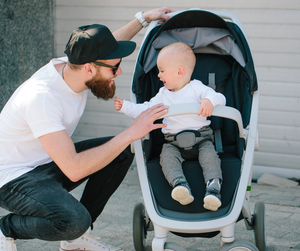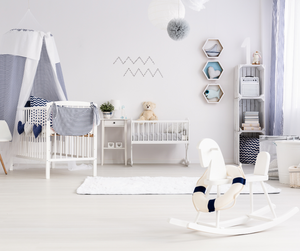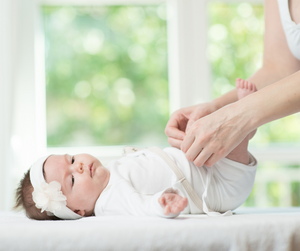Attachment Parenting
What exactly is attachment parenting?
You may have heard that attachment parenting is a method of raising a family that is solely focused on the child.
Some attachment-parenting enthusiasts support the 'three Bs' strategy, which includes breastfeeding, babywearing, and bed-sharing. These parents may continue to practise the three Bs until their children decide they no longer want them.
In reality, attachment parenting takes a wide range of concepts. It is simple to do on your own, and it does not require you to breastfeed for years or share your bed with your developing child.
Attachment parenting was developed by psychologist John Bowlby in the 1950s. Bowlby's attachment theory attempts to assist you as a parent in ensuring that your child grows up emotionally secure.
Bowlby discovered that babies have a fundamental need for safety at the outset of their lives through his work. This safety for your infant comes from being with you, because you will safeguard and care for her. This is the first step towards her developing a secure bond to you.
Physical intimacy was very essential to Bowlby in the early weeks and months. Keeping your baby close to you allows you to respond quickly when she needs you, letting her know you're there for her.
You will enable your baby to feel calm and calmed if you respond attentively to her. This helps her develop the ability to regulate her own emotions over time.
When your baby is small, it might be difficult to determine what she may need from you. Here are some ideas for meeting her needs:
- Breastfeed your infant whenever you want. You'll be nourishing her as well as soothing her with your familiar scent and the warmth of your flesh.
- Hold her close, look into her eyes, and check for signs that she's had enough milk if you're bottle-feeding.
- You might attempt babywearing, which involves wearing your baby in a sling next to your body.
- For at least the first six months, sleep in the same room as your infant so you can respond to her promptly at night.
- When your baby is attentive and content, talk to her and sing to her, paying attention to her cues so she feels acknowledged and listened to.
- Treat your baby's cries, and later, tantrums, as a form of communication. When she cries, she is asking for your assistance, as well as your direction and reassurance when she throws a tantrum.
How this method supports your developing child
Your infant will accumulate memories of being cared for as a result of these early events. These memories will serve as the foundation for her future emotional health.
A secure bond to you will offer your infant great interpersonal experiences. This gives her a strong sense of self and resilience, allowing her to deal with the ups and downs of life as she matures.
If you respond to your infant with empathy, she will learn how to act from you. She will gain the emotional resources to understand other individuals. When she is older, she will learn to be empathetic for herself.
What are the potential issues with Attachment Parenting?
Some people believe that attachment parenting entails becoming a victim to your child. Attachment parenting critics assert that:
- Children raised in this manner may be too demanding, hoping to have their way in everything.
- When striving to meet their child's every need, parents may grow overwhelmed and fatigued.
- Babies who have all of their needs fulfilled without having to express their desires may be less prone to explore. They may also fail to learn how to deal with their frustrations.
Attachment parenting, on the other hand, does not imply that you become a servant to your child. You, too, have needs to balance. And, as time passes, your child will no longer require such physical proximity all of the time. She'll be interested in meeting friends and developing other relationships as she matures. But she'll still need to know you're there for her at all times. You'll be doing well as a parent if you adapt to your child's changing requirements throughout time.
As a result, when your baby is a newborn, she requires your physical proximity to feel safe. She'll need to use you as a secure base to crawl away from and return to when she's nine months old.
You're bound to have conflicting feelings as you adjust to your growing child. As your child's need for you lessens, you may experience feelings of relief and loss. But you'll notice that a strong emotional foundation is also assisting her in navigating the world and discovering who she is as a person.




